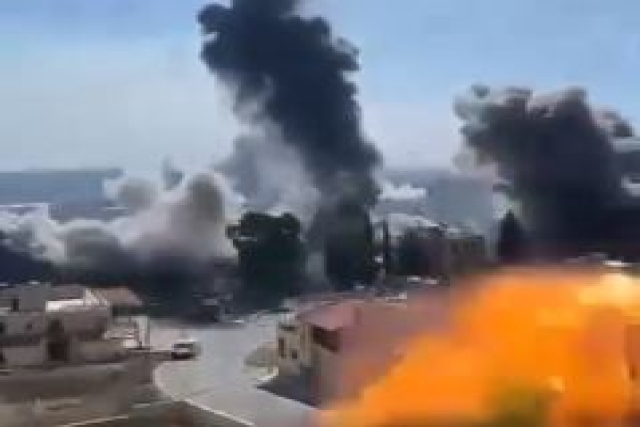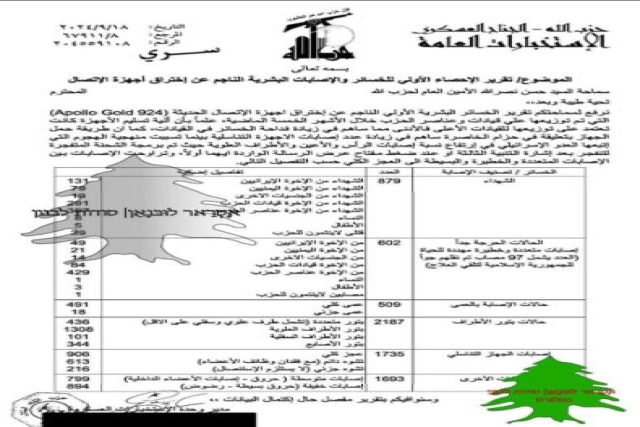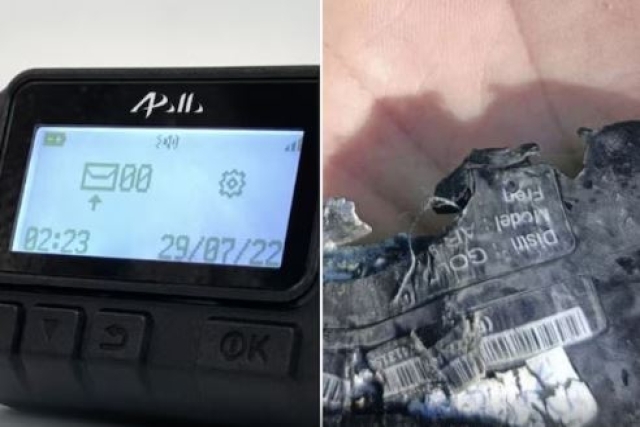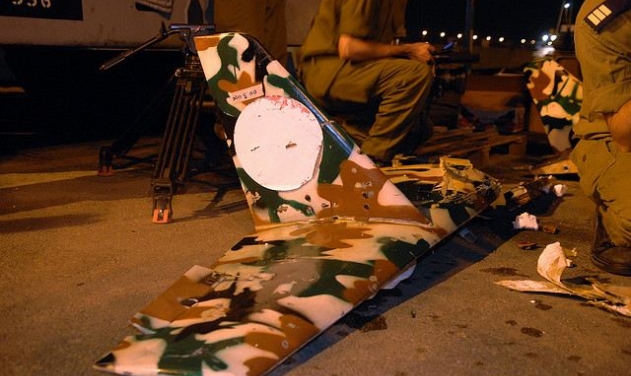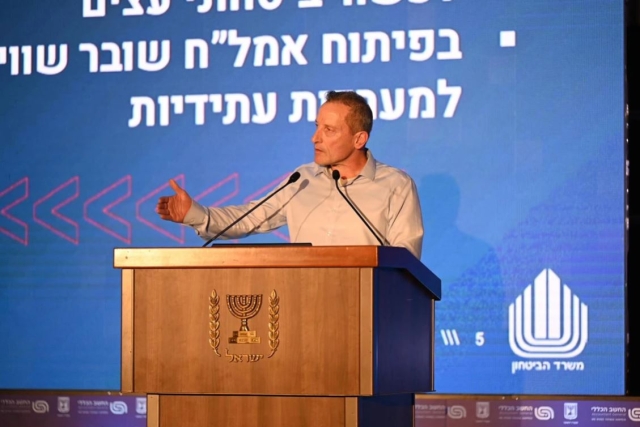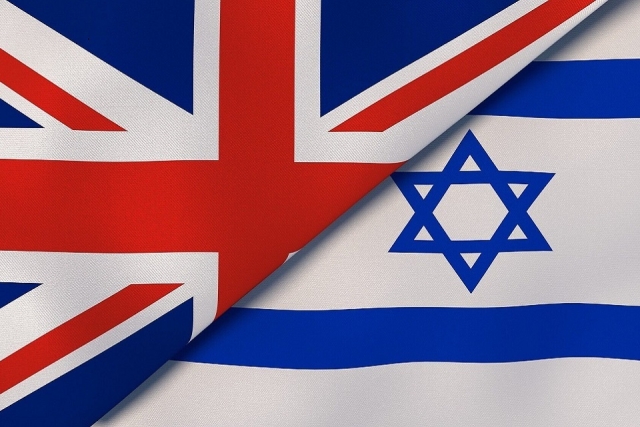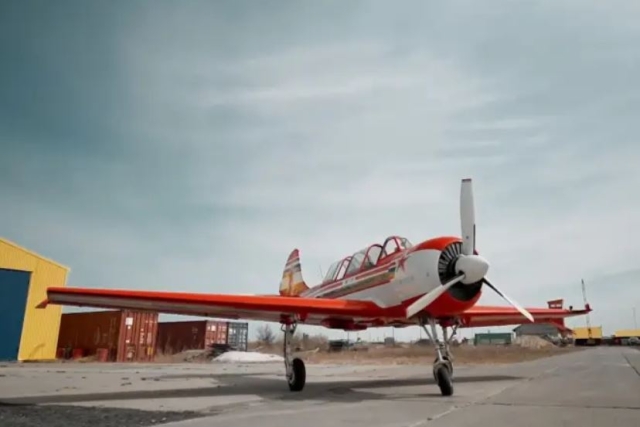First Hezbollah Missile Reaches Tel Aviv, Hezbollah Commander Killed in Israeli Airstrike
Israel’s largest-ever airstrike on Lebanon kills top Hezbollah commander Ibrahim Muhammad Qabisi, as Hezbollah retaliates with missile strikes on Tel Aviv and northern Israel, raising fears of further escalation.
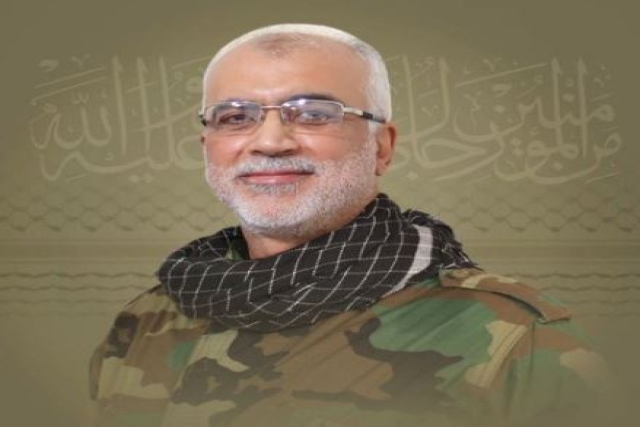
A missile strike by Iranian-backed Lebanese militia hit Tel Aviv for the first time, coinciding with Israel's most extensive airstrike on Lebanon to date, which killed Hezbollah's top commander, Ibrahim Muhammad Qabisi and others.
The missile strike set off alarms across Tel Aviv, but the missile was intercepted by Israel's David's Sling defense system. Although there were no casualties from the missile, it raised concerns over Hezbollah's increasing long-range missile capabilities.
Hezbollah’s leader, Ibrahim Muhammad Qabisi, was killed in the Israeli airstrike along with over 500 people, most of whom Israel identified as Hezbollah militants. The Lebanese health ministry reported that over 100 women and children were among the dead, with approximately 1,650 people wounded.
Qabisi, a key figure in Hezbollah's operations, had reportedly been involved in missile attacks against Israel and masterminded a 2000 operation that resulted in the abduction and killing of three Israeli soldiers. His death is seen as a major blow to Hezbollah's command structure.
In response to the airstrike, Hezbollah launched over 100 projectiles at Israel, including the missile that targeted Tel Aviv. Israeli forces quickly retaliated by locating and destroying the missile launcher in Nafakhiyeh, Lebanon. Hezbollah later claimed responsibility for the attack on its official Telegram channel, stating that it had fired a “Qadr 1” ballistic missile at Mossad’s headquarters in Tel Aviv. They accused the Israeli intelligence agency of planning the assassination of their leaders in a previous attack.
The Israeli airstrike, which targeted Hezbollah's command centers and weapons depots, was described by Israeli Defense Minister Yoav Gallant as delivering “extremely severe blows” to the militant group. Gallant warned that Israel was prepared for further strikes, signaling that the conflict might continue to intensify. He emphasized that Hezbollah's command and control systems, as well as their operatives and weapons, had suffered significant damage.
As the conflict intensifies, global concern is growing. Several nations have begun preparations to evacuate their citizens from Lebanon, fearing that the situation may escalate into a broader regional conflict. Hezbollah’s continued rocket fire, including an attack on an explosives factory in Israel, has sent families in northern Israel into bomb shelters. The Israeli military claims its defense systems have intercepted most of the rockets, but the threat of further attacks remains high.
In addition to the missile strike, the Israeli military reported that it intercepted three drones crossing from Lebanon into Israeli airspace. These drones set off alarms in coastal towns south of Haifa but were neutralized before causing any damage. No casualties were reported from this incident, but it underscores the expanding scope of Hezbollah’s offensive capabilities.
Despite the rising tensions, civilian life in Israel continues relatively normally. The municipality of Tel Aviv-Jaffa announced that daily activities, including educational operations, would proceed as usual, though they remain in contact with security services for updates. Ben Gurion International Airport experienced initial delays following the missile alarm, but operations returned to normal quickly, with no further disruptions reported.
Israeli military experts, including Brigadier General (Res.) Ilan Biton, have commented on the effectiveness of Israel’s missile defense systems, including Iron Dome and David's Sling. While these systems have proven effective at intercepting incoming missiles, Biton noted that they are not impenetrable, especially given the increased frequency of attacks. He stressed the importance of civilian preparedness and adherence to safety protocols in the event of further missile strikes.

